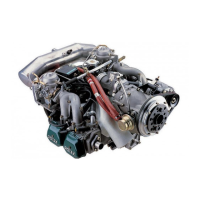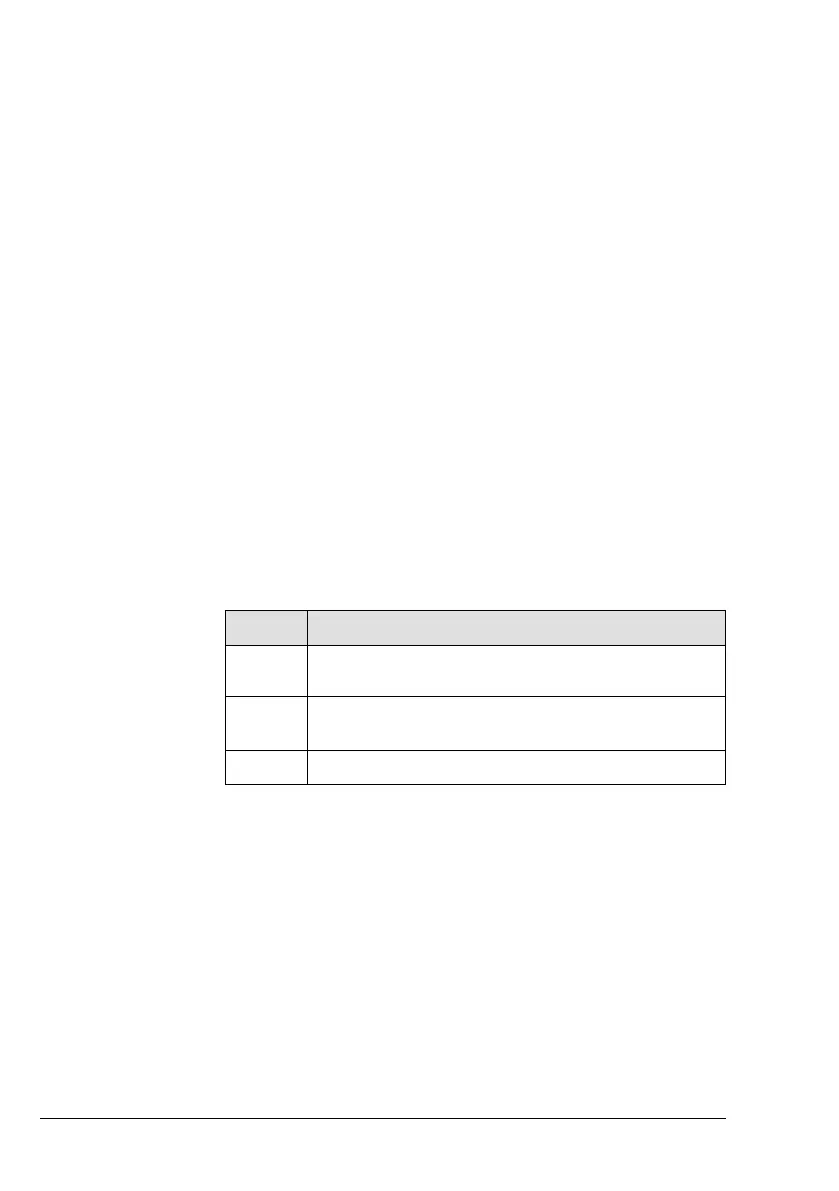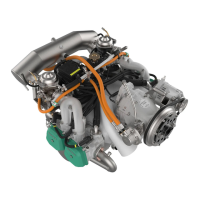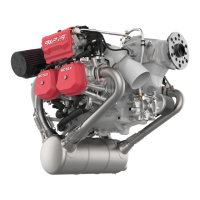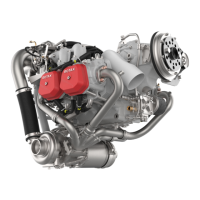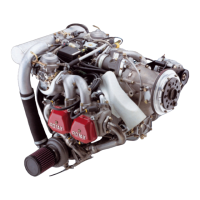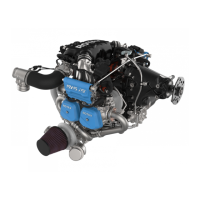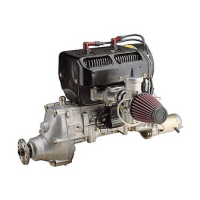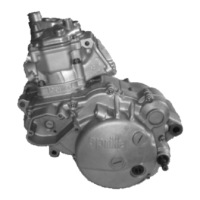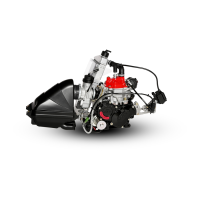3.8) Engine shut-off
Normally the cooling down of the engine during descending and
taxiing will be sufficient to allow the engine to be shut off as
soon as the aircraft is stopped.
At increased operating temperatures make an engine cooling
run of at least minimum 2 minutes.
3.9) Cold weather operation
Generally, an engine service should be carried out before the
start of the cold season.
Coolant
For selection of coolant and mixing ratio, see Chapter 2.3.
Lubricant
For selection of oil, see table of Lubricants Chapter 2.5.
Cold start
• With throttle closed and choke activated (open throttle ren-
ders starting carb ineffective)
• Be aware, no spark below crankshaft speed of 220 rpm (pro-
peller speed of 90 rpm)
• As performance of electric starter is greatly reduced when
hot, limit starting to periods not much longer than 10 sec.
With a well charged battery, adding a second battery will not
improve cold starts
Remedy - Cold start
Step Procedure
1 Use of multigrade oil with the low end viscosity code of 5
or 10.
2 Check electrode gap of spark plugs and set it to the mini-
mum or fit new spark plugs.
3 Preheat engine.
Icing in the air in-
take system
Icing due to humidity.
Carburetor icing due to humidity may occur on the venture and
on the throttle valve due to fuel evaporation and leads to per-
formance loss and change in mixture.
Remedy
• Intake air pre-heating is the only effective remedy. See Flight
Manual supplied by the aircraft manufacturer
Icing
Icing due to water in fuel.
Page 3-10
November 01/2016
BRP-Rotax Effectivity: 912 Serie
Edition 4 / Rev. 0
